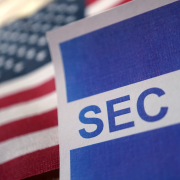Navigating Vendor Cybersecurity Risks
In the face of a progressively interconnected digital landscape, successfully managing the cybersecurity risks posed by vendors is an escalating concern for all businesses.
Cybersecurity Tabletop Exercise for a Multinational Insurance Brokerage Company
L&F has recently hosted a successful cybersecurity tabletop exercise for a multinational insurance brokerage company.
New York DFS Proposed Cybersecurity Regulations
NYDFS issues Proposed Amendments to 2017 Cybersecurity Regulation 23 NYCRR 500, with a 60-day public comment period until Jan 9, 2023.
To Catch a Trade Secret Thief With Forensic Neutrals
Remediating the theft of a trade secret can be likened to a dried red wine stain on your favorite white shirt. While the stain is readily visible, removing the stain and restoring the shirt to its original condition is difficult, and sometimes impossible. Similarly, discovering the theft of a trade secret does not solve the underlying business issues created by the theft. Those business issues require the organization to identify the bad actor who stole its trade secret and then ensure all evidence of the trade secret is removed from the thief’s possession.












